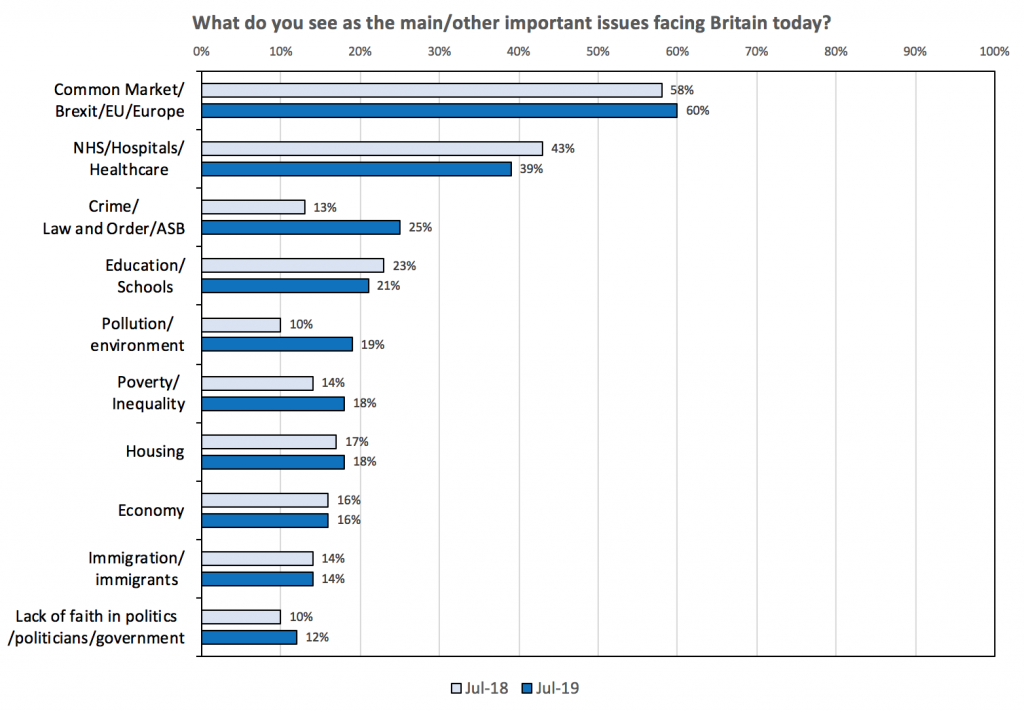I was invited to a BBQ on bank holiday Saturday. I didn’t know many people there but I thought – give it a go, free beer and there’s an extra day to recover from food poisoning.
Anyway, as the awkward conversation petered out, someone tried to start one of those games that adults weirdly like to play: “Who would you get to play you in a movie?”
I was a few “gratis bierres” down, so immediately jumped in with Clooney. It’s the obvious choice I know, not only due to the passing resemblance but also because I’d get him to direct. It would be shot in black and white like Good Night and Good Luck – which would work great for the gritty early life scenes set in Glasgow’s East End.
Unfortunately for Dominic Cummings, he didn’t get to choose who played him in Channel 4’s Brexit biopic The Uncivil War. I’m not sure if he does awkward BBQs but if he did, I’m sure “Benedict Cumberbatch in a wig last used by Gregor Fisher in The Baldy Man” is not what he would have shouted out.
It may not have been an aesthetically flattering portrayal but it did cement his reputation somewhat. A rather mixed career previously – from implausible Russian airline start-up to special adviser at DfE – was all good and well, but it don’t get “the Batch” auditioning for the role. Brexit has been the graveyard for prime ministers and assorted politicos, but it was the making of CummingsBatch.
Now, if reports are to be believed, he’s running the country. Prorogation is his “war gamed” strategy (among many others) and every paper seems to refer to him as “de facto chief of staff” to the prime minister and, by all accounts, he’s running a command and control operation with the government’s special advisers (spads). Tales are regularly emerging of weekly meetings with the spads where they’re hauled over the coals for leaks or off-grid messaging, expected to dib on wayward ministers and then receive their instructions for the coming week. This is apparently followed by lashings of beer and wine because, “hell yeah, we work hard and we play hard!”. All very 1980s Wall St if you ask me and if his reported summary dismissal of the chancellor’s spad is true, CummingsBatch is sending a clear signal of who’s the boss and how he plans to operate.
CummingBatch may be de facto many things but, ultimately, he’s a spad to the prime minister and, as such, has no real power. Everything he does is in the name of the prime minister. Now, the PM can abdicate or delegate that authority as he sees fit but CummingsBatch doesn’t act alone: he is for all intents and purposes the voice of the PM.
But just as CummingsBatch only speaks with the PM’s authority, spads only speak with the authority of the minister who appointed them.
The ministerial code is clear: “The responsibility for the management and conduct of special advisers, including discipline, rests with the minister who made the appointment. Individual ministers will be accountable to the prime minister, Parliament and the public for their actions and decisions in respect of their special advisers.”
This is not some notional accountability. They are appointed directly by ministers as exceptions to the civil service code of open and fair selection, and the person who appoints them is directly accountable for their actions. In theory, should it all go Pete Tong, the minister should carry the can.
So whilst it may suit the PM to let CummingsBatch off the leash, as the IfG’s Jill Rutter puts it, “the image of hardman Cummings whipping Whitehall into shape, while a beaming Johnson is on a splash and selfie tour on a virtual battle bus, suits both parties – but no one should fall for it. There is only one person in charge, and that is emphatically not Dominic Cummings”.
That may be a risk the PM believes he’s politically impervious to, but what of his ministers? The relationship between spads and their ministers is one of the closest and well – special – in Whitehall. Ministers rely on their trusted appointees to have their back, provide political advice and work closely with the departmental team. Whilst they’ve always had to serve the government as a whole, why would a minister accept divided loyalties in this relationship, never mind the risk of carrying the can for actions they did not authorise?
Under Theresa May, cabinet government had all but broken down, as any lobby journalist’s WhatsApp would tell you from 11am on a Tuesday. Indiscipline and self-interest appeared to be the watchwords back then, but a cabinet being run through a centrally controlled Spad structure is equally dysfunctional.
Cabinet government works best when ministers are departmental champions, with authority and confidence to debate what’s in the public interest, then abide by cabinet responsibility or resign to speak out. That’s true at any time but essential as we approach our “do or die” moment over Brexit.
General Secretary FDA union.
